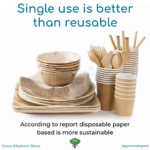My wife and I were gifted a spa day experience on our last anniversary. Due to being busy with work and recently moving house we had delayed taking up the opportunity until the voucher had less than a month to go of its 12 month life span.
The venue was part of a hotel estate based around an historical house and set in over 40 acres of woodland. The spa building itself was set in a beautiful walled garden with an indoor and outdoor pool, gym, steam room, sauna… you know, all the stuff you’d expect. This is a luxury location, featured in those glossy sunday newspaper supplements – we were looking forward to being treated to a lovely day.
The package we had been given provided two treatments each and a lunch. We booked our day, deciding to take the earlier treatment slots so we could then relax and enjoy the day discovering the features of the spa.
The day begins
It was an overcast day, but dry and we set off around 8:30 to drive to the hotel. The entrance was down a sweeping driveway which showcased the location. Set in mature woodlands with the white manor house nestled in a clearing surrounding by the modern lodges which made up the accomodation. We parked and struggled to find a sign to the spa – a minor cleaning issue obscuring the lettering. A spritely walk up the hill revealed parking right outside the spa, just no way to know it was there – oh well, never mind, it was a nice trot.
Before I continue with the experience, I’d like to introduce the foundation of the lessons I learnt.
The 7 Organisational Assets (plus 1)
There are 7 types of assets that any organisation utilises to do business:
- Information – Research, procedures, personal data, marketing collateral and ‘cloud-based’ configurations
- People – Employees and, by extension, others which are contracted to deliver part of the service
- Intellectual – Intangible items that have been created like logos, recipes, computer code and ideas
- Brand – The good name of the organisation along with the look, feel, style and voice
- Customers – Those that use or benefit from the services and products offered. This could include business partnerships too.
- Physical – The very tangible buildings, plant and equipment utilised
- Money – The capital and revenue needed to keep an organisation operating
There is an eighth element that could be deemed an asset, which is the organisation’s values. Values influence the way the organisation uses its assets. They may not be documented, declared or immediately visible, but every organisation has them whether it knows it or not!
Assets need protecting, as much as they are used, by an organisation to deliver its vision. Each organisation differs in the way it uses its assets and varies even more in the priority it gives to taking care of them. This was evident at our spa day…
The spa ‘experience’ continues
The reception area within the converted coach house was modern and very tidy. The receptionist was immediately confused with the package we had booked. “We don’t do that package anymore” was commented, “not sure what that includes”, but we were quickly instructed in where the main areas were and I was directed to the treatment areas as I was first to get a full body massage.
I was presented with a form to complete. An understandable request for information as certain issues need to be considered before these types of treatment are given. Name, address, date of birth, telephone, medication and medical conditions were all requested, but with minimal explanation of what this would be used for, where it would be stored or how long it would be kept. So my information was of value to them, but my privacy? Possibly not.
I was politely seen to a treatment room. I have to say, the people I had met so far were pleasant and, aside from the package comment, professional. Some further information about my personal preferences was collected verbally and I was left to change. The dimly lit room with, dare I say it, whale noises and other ‘relaxing’ tones, was beautifully provisioned, with its own toilet and wash facilities and ample room for the therapist to work. There had been significant investment of money in the physical assets. It all looked clean… but it was a little dark to see properly!
Understanding first
The session, for me, was undertaken with the minimal of talking. Unlike me to not be chatting, but I thought I’d try the whole reflective silence thing. The only real customer feedback the therapist received was my “Yeah, good, thanks” in answer to the question “How are you feeling now?”. Not the best information on which to base whether you have been successful or not. The exit felt a little scripted “Drink lots of water, don’t do anything to strenuous for the rest of the day” and so forth. I was sent on my way into the rest of the spa.
Our visit was out of peak season for Cornwall and the venue was very quiet. In fact, I was the only one in the swimming pool. My reflective silence had to continue! The pool was cooler than I expected, as was the bubble pool. Saving money or was this of therapeutic benefit to the customer? I was starting to get a feel for the values of the company now. Tried the steam-room which was appropriately hot and steamy and the sauna, which was appropriately hot, and unsteamy. Then I stepped into the showers before entering the pool – flickering light and poorly cleaned… hmmm.
Time to reflect
A solitary swimmer had joined me in the pool area and as I reflected further in the bubble pool I realised that there was no music. The only background noise was a rattling air conditioner. I hopped into the pool and swam to the edge of the pool to look out onto the landscaped gardens. This was an infinity-style pool which, in better weather, could be fully open to the outside through sliding doors. However, those glass doors were closed and caked in chlorine salt, right where I was wanting to look out. Looking closer, the chlorine was having a detrimental corrosive effect on the lower hinges of the doors. So not spending money on cleaning was impacting the customer experience damaging the physical asset… a false economy.
Listening to others
I was finally joined by another customer in the bubble pool and my enforced silence was finally broken. He explained that he paid monthly, a not insignificant sum, to use the gym with a trainer and the spa facilities. He also noted the lack of cleanliness and, interestingly, that the people changed very regularly. The receptionist, apparently, had been here two months, so no wonder they didn’t know the old packages.
My wife finally joined me and we decided to get the lunch that was part of the deal. The receptionist, once again, didn’t have the information on our booking and what was included. They also didn’t have the authority to just do what was the best experience for the customer, or so it seemed. We were offered a light snack menu and chose a couple of tasty wraps, no drink! It was in the “lounge” (it was a cafe style seating area) that we decided that our day was to be a half day and we went to get changed and left.
Five underemployed people were in reception, and we exited with only a mild acknowledgement of our leaving as they chatted to each other.
Lessons learnt
When I arrived at the spa, their brand and reputation, were highly regarded. Poor use of information and the people had left the customer feeling undervalued. The poorly maintained physical assets was just the icing on the cake. The only thing that was clear was that the money was the most important asset to this company.
Money has clearly been used extensively to create a premier location. Pricing was at a premium level too. However, using the money to develop the people, creating better information processes and maintaining the physical assets seemed to be severely lacking. In fact, the comment from my pool buddy was “the owners turn up in helicopters, so money is not an issue” provides an insight to the underlying values of the organisation.
Brand and reputation ruined in one visit. Not only that, but I’m now nervous about the privacy of my personal data… perhaps they haven’t spent any money on that either!




